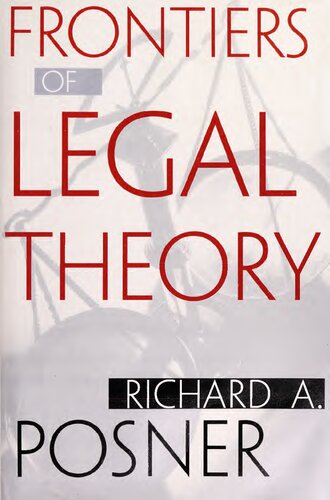

Most ebook files are in PDF format, so you can easily read them using various software such as Foxit Reader or directly on the Google Chrome browser.
Some ebook files are released by publishers in other formats such as .awz, .mobi, .epub, .fb2, etc. You may need to install specific software to read these formats on mobile/PC, such as Calibre.
Please read the tutorial at this link: https://ebookbell.com/faq
We offer FREE conversion to the popular formats you request; however, this may take some time. Therefore, right after payment, please email us, and we will try to provide the service as quickly as possible.
For some exceptional file formats or broken links (if any), please refrain from opening any disputes. Instead, email us first, and we will try to assist within a maximum of 6 hours.
EbookBell Team

5.0
80 reviewsThe most exciting development in legal thinking since World War II has been the growth of interdisciplinary legal studies--the application of the social sciences and the humanities to law in the hope of making law less formalistic, more practical, better grounded empirically, bettered tailored to social goals. Judge Richard A. Posner has been a leader in this movement, and his new book explores its rapidly expanding frontier. The book examines five principal areas or directions of interdisciplinary study: economics, history, psychology, the epistemology of law and the empirical study of law. These approaches are seen to interpenetrate and to compose a coherent body of legal theory--a unified framework for understanding such seemingly disparate phenomena as the economics of free speech, the intellectual history of economic analysis of law, the relation between income and liberty, the law of possession, the psychology of legal decisionmaking, the role of emotion in law, and the use of citation analysis to evaluate judges and law professors. The book carries on Posner's project of analyzing the law as an institution of social governance.